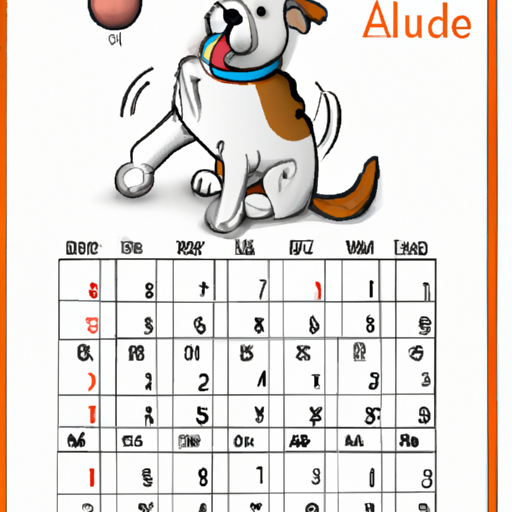“`markdown
When Do a Dog’s Balls Drop?
Introduction
You, as the caregiver, might have noticed changes happening in your little puppy as he grows. It’s essential to understand the development process of your pooch to ensure he’s maturing healthily. One such change you might find yourself wondering about is when your male dog’s testicles will descend. Don’t worry, we’ve got you covered.
Understanding Your Dog’s Growth
Just like humans, dogs also go through different stages of growth. The testicles of a male puppy will begin to drop when he starts to mature. Generally, this happens around 2-6 months of age but can vary. Here are the key stages of your dog’s growth:
- Neonatal Stage (0-2 weeks): At this stage, the puppy is completely dependent on his mother.
- Transitional Stage (2-4 weeks): The puppy begins to open his eyes, walk, and wag his tail.
- Socialization Stage (4-12 weeks): During this stage, the puppy starts to interact with other dogs and humans.
- Juvenile Stage (12 weeks to puberty): This is when your dog’s testicles begin to descend.
Factors Affecting Testicle Descent
Several factors can influence when your dog’s balls drop. These include:
- Breed: Some breeds mature faster than others.
- Size: Larger breeds tend to mature slower than smaller ones.
- Health: If your puppy is experiencing health issues, it might delay the process.
Recognizing Potential Problems
In some cases, one or both of the testicles might fail to descend, a condition known as cryptorchidism. It’s important to keep an eye out for this, as it could lead to health problems like testicular cancer or torsion. Symptoms of cryptorchidism include:
- Absence of one or both testicles in the scrotum
- Pain or discomfort in the groin area
- Abnormal behaviour such as excessive licking of the groin area
If you notice any of these symptoms, it’s crucial to consult a vet immediately.
Frequently Asked Questions
Q: What if my dog’s testicles haven’t dropped by 6 months?
A: It’s best to consult a vet. They might be able to provide treatment or suggest neutering to prevent potential health issues.
Q: Can a dog with cryptorchidism still breed?
A: No, cryptorchid dogs are often sterile and breeding them can pass on the condition to future generations.
Q: What’s the treatment for cryptorchidism?
A: The most common treatment is surgical removal of the undescended testicle(s), usually performed when the dog is neutered.
Remember, as a caregiver, your dog’s health and well-being are in your hands. Stay informed, stay vigilant, and your pup will grow into a healthy, happy adult.
“`



